Rooftop Solar Installations Surge in India: 10 Lakh Target by FY'25
By Rediff Money Desk, New Delhi Dec 04, 2024 18:45
India's rooftop solar installations are accelerating, with 10 lakh installations expected by fiscal end. The government has implemented several measures, including IT system upgrades and streamlined subsidies, to expedite the process.
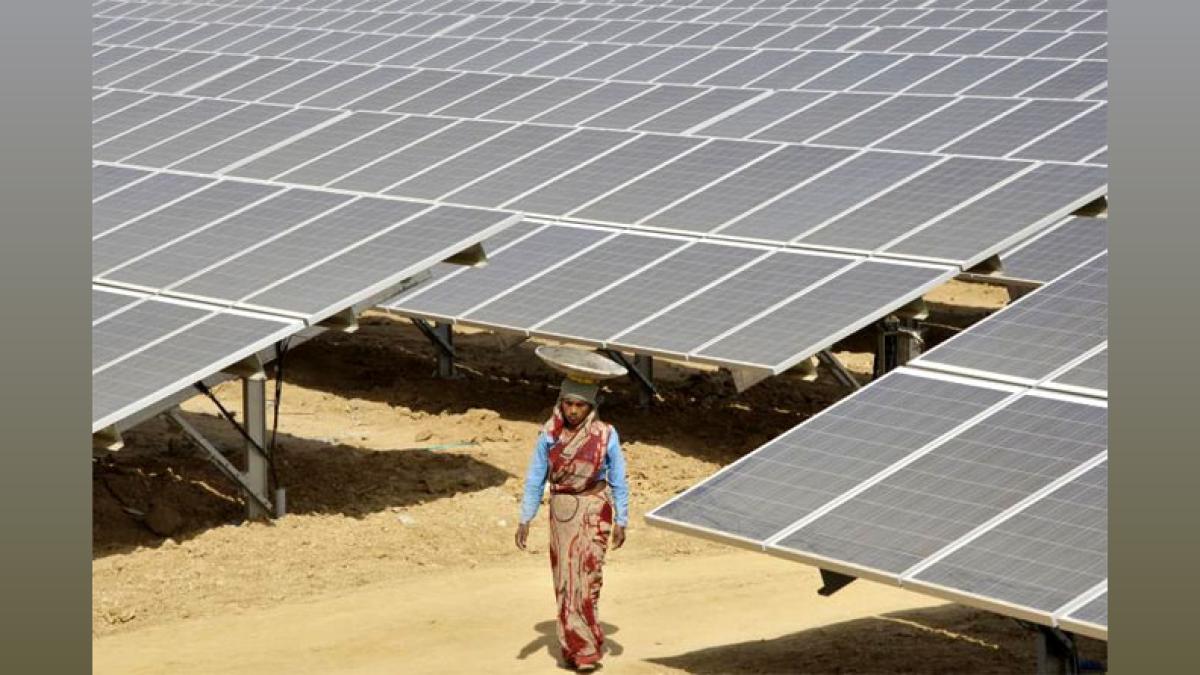
New Delhi, Dec 4 (PTI) The government has taken a series of steps such as building robust IT systems, cutting down regulatory barriers, and efficiency in subsidy disbursement to speed up domestic rooftop solar installations, which are expected to reach 10 lakh by the end of this fiscal under a scheme, a senior official said on Wednesday.
Around 1.45 crore registrations have been made under the PM Surya Ghar Muft Bijli Yojana (PMSGMBY) and 6.34 lakh installations completed. The scheme targets to achieve one crore installations in the residential sector by FY'27 with an outlay of Rs 75,021 crore.
As per official data, Gujarat has seen the maximum solar installations under the scheme at 2,86,545, followed by Maharashtra with 1,26,344 installations and Uttar Pradesh at 53,423.
The ministry is also coordinating with all stakeholders including REC, DISCOMs, and vendors, to resolve any challenge for the successful implementation of the scheme.
The official said that transformative initiatives of this scale necessitate solid foundational work to ensure long-term success and sustainability as the scheme is the world's largest domestic rooftop solar programme.
Prior to its launch in February 2024, only 8.1 lakh installations were completed over a decade (20142024), averaging 7,000 per month. In contrast, within just nine months of PMSGMBY, 6.3 lakh installations have been achieved, an average of 70,000 per month.
The official said that the numbers are increasing at a healthy rate as initial implementation challenges were effectively addressed to accelerate the rollout.
"DISCOMs undertook auto-load enhancements to ensure the necessary power load capacity, while regulatory barriers were reduced by waiving technical feasibility reports (TFR) for systems up to 10kW. Timely inspections by DISCOMs expedited subsidy releases, and measures ensured the availability of net meters," the official added.
Efforts to expand the vendor base also supported rapid deployment, complemented by affordable financing options through the Jan Samarth Portal for systems up to 3kW.
"Building robust IT systems to integrate over 90 DISCOMs, banks, and other stakeholders was critical to coordinating operations at this scale. Vendor development has been a priority, with nearly 9,000 vendors activated and more joining daily," the official said.
The other measures included capacity-building initiatives have trained 40,000 personnel, including DISCOM officials and solar technicians, to ensure high-quality installations and service delivery.
An additional 2 lakh technicians will be trained over the next eight months. Furthermore, more than 50,000 DISCOM engineers are receiving specialized training to inspect and commission rooftop solar plants and provide net meters.
"The scheme has also significantly simplified consumer processes," the official said adding earlier applicants had to submit multiple documents and make repeated visits to DISCOM offices.
Now, most DISCOMs have waived technical feasibility approvals for systems under 10kW and digitized their processes, reducing the documentation burden and streamlining applications.
On subsidy disbursement, the official said that by November, over Rs 3,100 crore had been disbursed to more than four lakh consumers.
With an average of 67,000 households receiving subsidies monthly, the scheme demonstrates operational robustness and a commitment to timely financial support.
Subsidies are now processed within 15 days, enhancing consumer satisfaction.
Besides, grievance redressal mechanisms have also been significantly improved.
Initial delays, which extended up to 60 days, have been reduced to a resolution time of 715 days. Extensive awareness campaigns have complemented these efforts, driving registrations and educating households about the scheme's benefits, the official said adding these campaigns are expected to further bolster participation, ensuring sustained momentum and widespread adoption.
"The monthly installation rate has increased from 7,000 before PMSGMBY to 70,000 since March this year. By March 2025, installations are projected to surpass 10 lakh, ramping up to 20 lakh by October 2025, 40 lakh by March 2026, and the targeted one crore by March 2027," the official added.
Around 1.45 crore registrations have been made under the PM Surya Ghar Muft Bijli Yojana (PMSGMBY) and 6.34 lakh installations completed. The scheme targets to achieve one crore installations in the residential sector by FY'27 with an outlay of Rs 75,021 crore.
As per official data, Gujarat has seen the maximum solar installations under the scheme at 2,86,545, followed by Maharashtra with 1,26,344 installations and Uttar Pradesh at 53,423.
The ministry is also coordinating with all stakeholders including REC, DISCOMs, and vendors, to resolve any challenge for the successful implementation of the scheme.
The official said that transformative initiatives of this scale necessitate solid foundational work to ensure long-term success and sustainability as the scheme is the world's largest domestic rooftop solar programme.
Prior to its launch in February 2024, only 8.1 lakh installations were completed over a decade (20142024), averaging 7,000 per month. In contrast, within just nine months of PMSGMBY, 6.3 lakh installations have been achieved, an average of 70,000 per month.
The official said that the numbers are increasing at a healthy rate as initial implementation challenges were effectively addressed to accelerate the rollout.
"DISCOMs undertook auto-load enhancements to ensure the necessary power load capacity, while regulatory barriers were reduced by waiving technical feasibility reports (TFR) for systems up to 10kW. Timely inspections by DISCOMs expedited subsidy releases, and measures ensured the availability of net meters," the official added.
Efforts to expand the vendor base also supported rapid deployment, complemented by affordable financing options through the Jan Samarth Portal for systems up to 3kW.
"Building robust IT systems to integrate over 90 DISCOMs, banks, and other stakeholders was critical to coordinating operations at this scale. Vendor development has been a priority, with nearly 9,000 vendors activated and more joining daily," the official said.
The other measures included capacity-building initiatives have trained 40,000 personnel, including DISCOM officials and solar technicians, to ensure high-quality installations and service delivery.
An additional 2 lakh technicians will be trained over the next eight months. Furthermore, more than 50,000 DISCOM engineers are receiving specialized training to inspect and commission rooftop solar plants and provide net meters.
"The scheme has also significantly simplified consumer processes," the official said adding earlier applicants had to submit multiple documents and make repeated visits to DISCOM offices.
Now, most DISCOMs have waived technical feasibility approvals for systems under 10kW and digitized their processes, reducing the documentation burden and streamlining applications.
On subsidy disbursement, the official said that by November, over Rs 3,100 crore had been disbursed to more than four lakh consumers.
With an average of 67,000 households receiving subsidies monthly, the scheme demonstrates operational robustness and a commitment to timely financial support.
Subsidies are now processed within 15 days, enhancing consumer satisfaction.
Besides, grievance redressal mechanisms have also been significantly improved.
Initial delays, which extended up to 60 days, have been reduced to a resolution time of 715 days. Extensive awareness campaigns have complemented these efforts, driving registrations and educating households about the scheme's benefits, the official said adding these campaigns are expected to further bolster participation, ensuring sustained momentum and widespread adoption.
"The monthly installation rate has increased from 7,000 before PMSGMBY to 70,000 since March this year. By March 2025, installations are projected to surpass 10 lakh, ramping up to 20 lakh by October 2025, 40 lakh by March 2026, and the targeted one crore by March 2027," the official added.
Source: PTI
DISCLAIMER - This article is from a syndicated feed. The original source is responsible for accuracy, views & content ownership. Views expressed may not reflect those of rediff.com India Limited.
You May Like To Read
TODAY'S MOST TRADED COMPANIES
- Company Name
- Price
- Volume
- Vodafone Idea L
- 8.41 (+ 2.44)
- 60373413
- Evexia Lifecare
- 3.94 (+ 4.79)
- 20851315
- Standard Capital
- 0.99 ( 0.00)
- 17601948
- Filatex Fashions
- 1.00 (+ 3.09)
- 16435485
- Sunshine Capital
- 2.21 (+ 4.74)
- 16004940
MORE NEWS

Gadkari Advocates for Smart Villages Like Smart...
Union Minister Nitin Gadkari emphasizes the need for smart villages mirroring smart...

Satellite Spectrum Allocation: DoT Seeks...
India's Department of Telecom (DoT) has sought recommendations from Trai on...

Centralised Metrology Portal for Ease of Doing...
India is developing a national legal metrology portal (eMaap) to streamline licensing,...





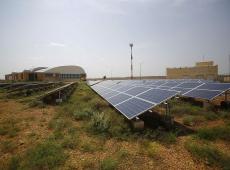

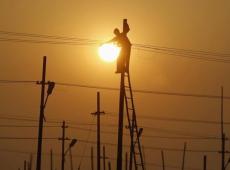


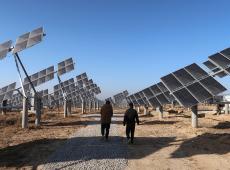
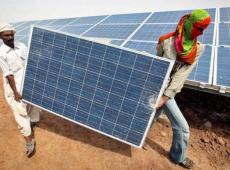
 © 2024 Rediff.com India Limited. All rights reserved.
© 2024 Rediff.com India Limited. All rights reserved.